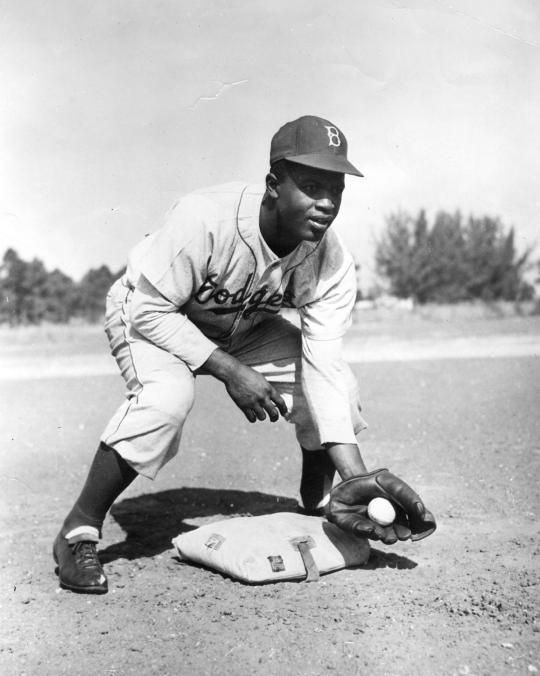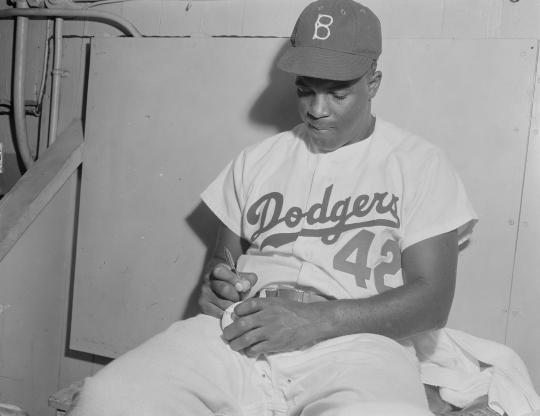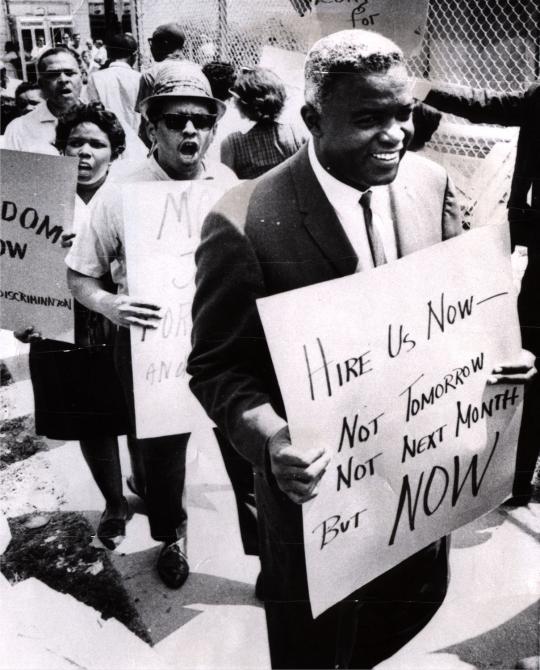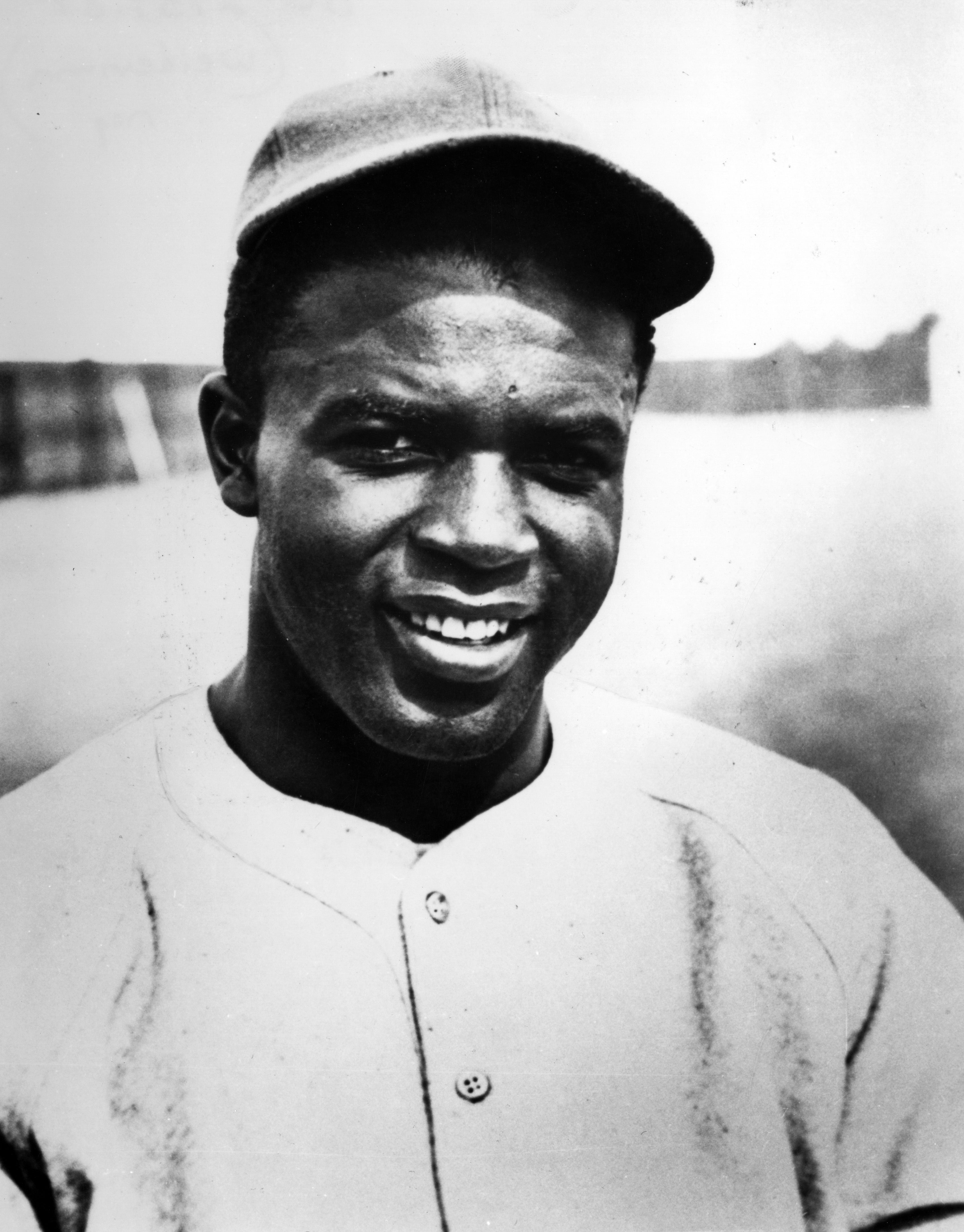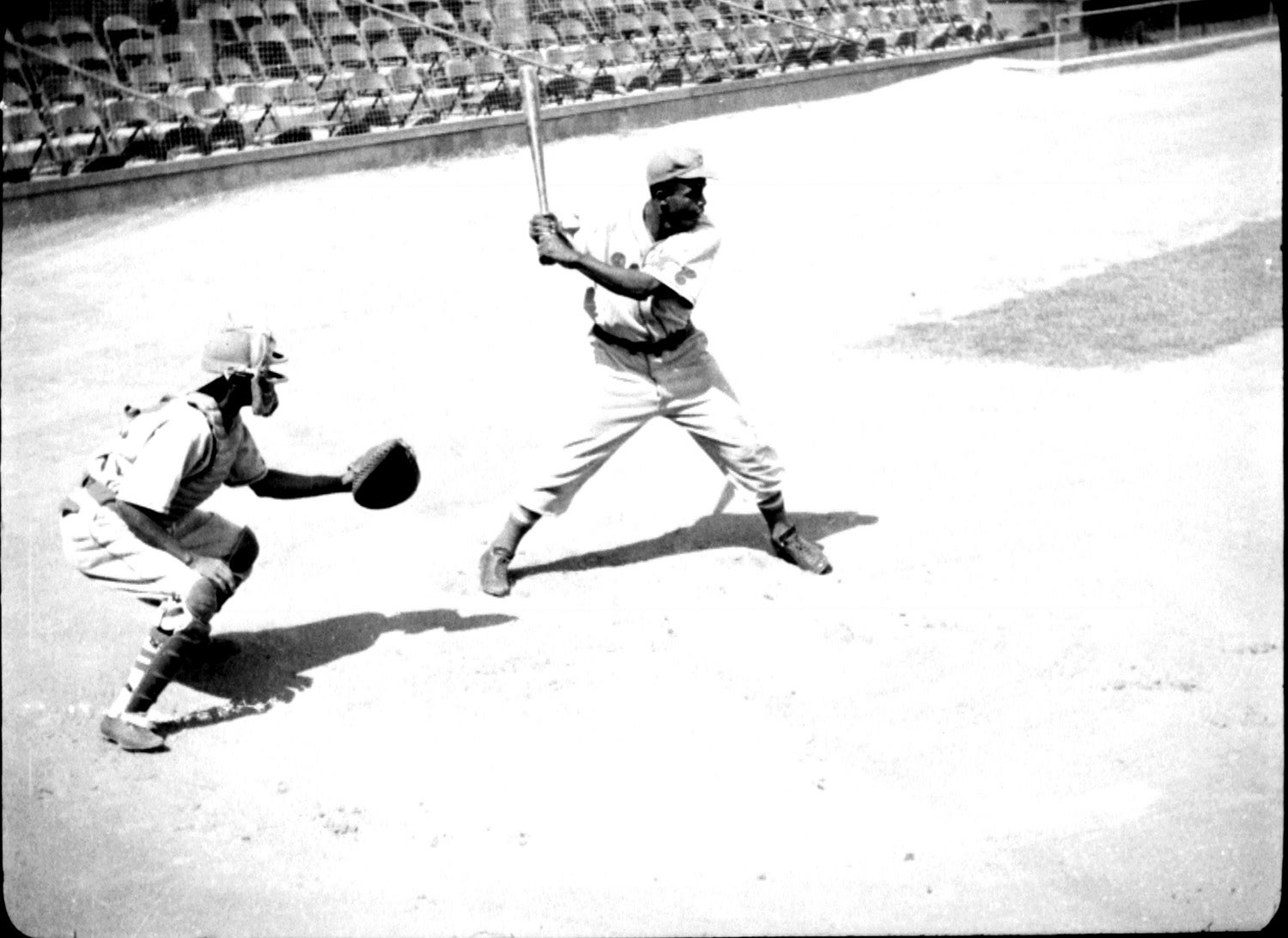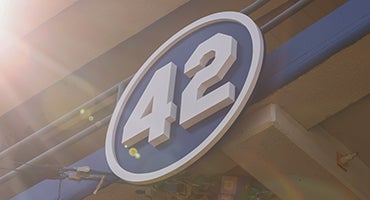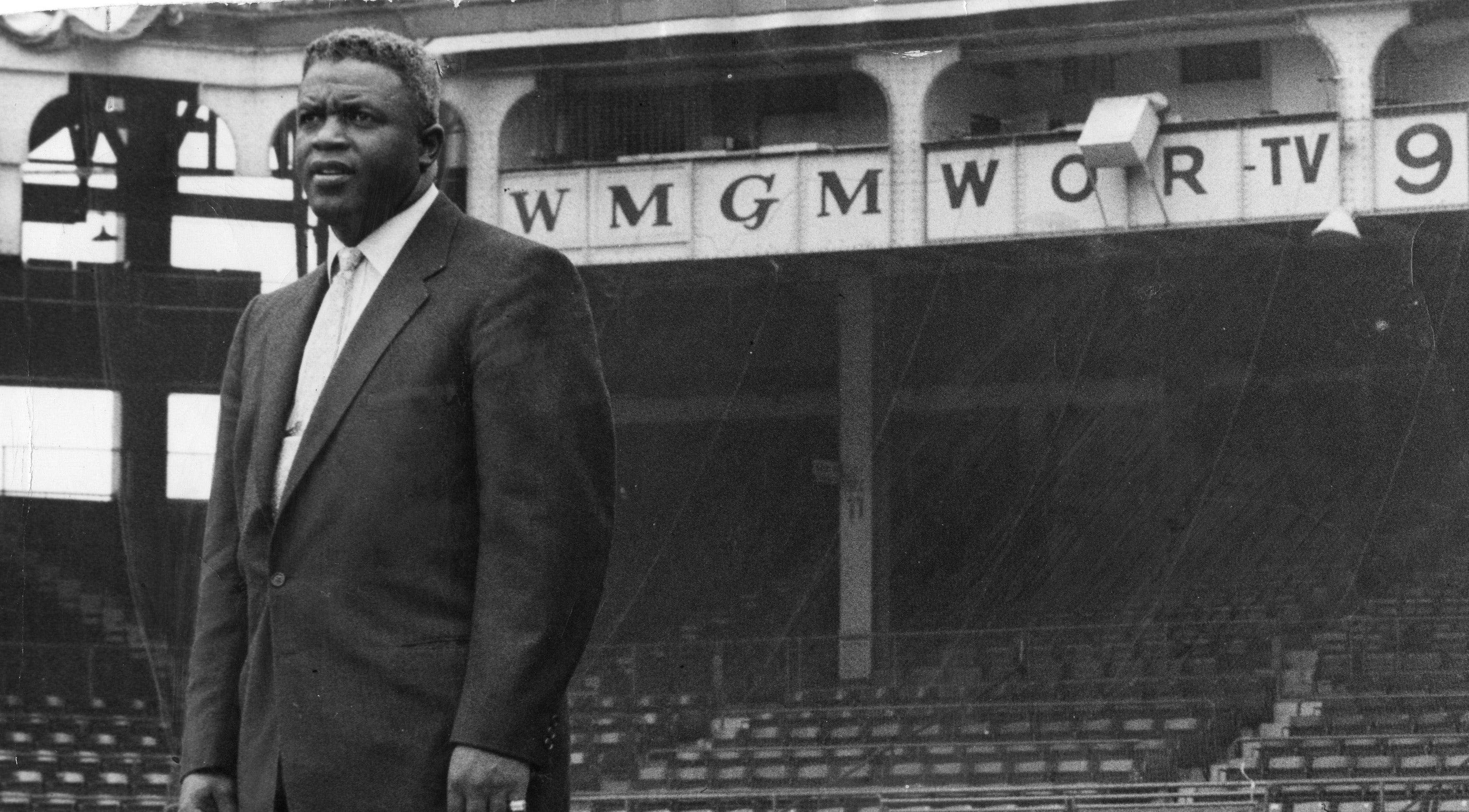- Home
- Our Stories
- A century ago, Jackie began his historic journey
A century ago, Jackie began his historic journey
Today, January 31, the baseball world and many others will pause to reflect on what would have been the 100th birthday of one of the game’s greats, Jack Roosevelt Robinson.
Robinson is not the only baseball great born on Jan. 31. He shares a birthday with fellow Hall of Famers Ernie Banks and Nolan Ryan. But Robinson’s path to the big leagues was unlike any before or since.
Hall of Fame Membership
There is no simpler, and more essential, way to demonstrate your support than to sign on as a Museum Member.
Born to sharecroppers in rural Cairo, Georgia, on Jan. 31, 1919, Robinson would claim that he never had it made – that he had to fight for what he wanted and what he believed in. Fatherless when he was 14 months old, his mother moved the family to Pasadena, Calif., where he would make his mark on athletic fields throughout southern California.
Starting at Muir Technical High School and later Pasadena City College and UCLA, Robinson was determined to follow in the footsteps of his older brother, Mack, who had been a track silver medalist at the 1936 Summer Olympic Games in Berlin. Despite his athletic prowess, Mack Robinson returned to the United States after the Olympics and assumed a position as a janitor for the city of Pasadena. Seeing this ignited a spark in Jackie Robinson’s soul.
A talented multi-sport athlete at UCLA, Robinson joined the United States Army during World War II and risked a court martial to defend his principles while stationed at Fort Hood, Texas. Following the war, at the age of 26, Robinson joined the renowned Kansas City Monarchs club of the Negro American League, where he quickly gained the attention of fans and major league officials.
Though there were more well-regarded ballplayers in the Negro Leagues at the time, Branch Rickey and the Dodgers’ baseball people were impressed not only by Robinson’s skills but also by his ability to handle difficult situations. On Oct. 23, 1945, it was announced that Robinson signed a contract to play for Brooklyn’s International League affiliate, the Montreal Royals.
Organized baseball would never be the same, as its long-standing color barrier would soon tumble to the ground.
Though they faced difficulty at Spring Training in segregated Florida, Robinson and his wife Rachel were warmly embraced by much of the Montreal community as his top-notch play for the Royals spoke for him. For as much love as he received in Montreal, he also was on the receiving end of disparaging and racist remarks from fans and teams throughout the league. The same continued in 1947 when he became the first African American in decades to play in the major leagues.
Despite his personal feelings against keeping quiet about the abuse, Robinson persevered and went on to hit .297 with a league-leading 29 stolen bases, capturing the Rookie of the Year Award which would later be named in his honor.
Two years later, Robinson earned his first All-Star Game berth and won the National League batting title. He once again led the league in steals and took home the NL Most Valuable Player Award. Robinson would have several more productive seasons for the Dodgers, earning five more All-Star Game selections and being a part of the 1955 World Series championship club – his only title in six tries against the vaunted New York Yankees.
Off the field, Robinson was a businessman, serving as an executive for Chock Full O’Nuts coffee, founding his own bank, supporting other African-American businesses, and generally aiming to be a positive influence in his communities. The father of three chose business over baseball in Dec. 1956 when the Dodgers traded him to the Giants. He told Giants owner Horace Stoneham that he would not report, and thus the deal was voided and his career on the field ended.
Robinson was also very involved politically, often judging candidates by his perceptions of how they supported civil rights legislation and initiatives.
Initially a supporter of Richard Nixon, Robinson later changed his mind when he determined that Nixon’s views on civil rights did not match his own. He also wrote a regular newspaper column called “Jackie Robinson Says,” in which he espoused whatever views he had at that moment in time.
In 1962, Robinson was elected to the Baseball Hall of Fame by the Baseball Writers’ Association of America.
His later years were filled with grief and health issues, as he suffered the effects of diabetes and the loss of his son, Jackie, Jr., in a car accident.
Having returned from the Vietnam War with substance abuse issues, Jackie, Jr., managed to get clean at Daytop, an organization for those looking to overcome substance abuse. The elder Robinson became an ardent supporter of Daytop and its mission.
As he entered the 1970s, Robinson continued suffering from diabetes, becoming nearly blind. His last public appearance was at Game 2 of the 1972 World Series in Cincinnati, where he threw out a ceremonial first pitch and urged baseball to hire African Americans as coaches and managers. Nine days after his appearance at Riverfront Stadium, on Oct. 24, 1972, he fell victim to a fatal heart attack at this home in Stamford, Conn.
His widow, Rachel, who will turn 97 in 2019, and their children Sharon and David, continue to carry the torch for Jack through a variety of charitable and community-based efforts. The Jackie Robinson Foundation, a non-profit founded in 1973, offers minority students opportunities in education and leadership. In 1997, baseball honored the 50th anniversary of Robinson’s major league debut by retiring his number 42 throughout the game. More recently, major league players, coaches, managers, and umpires have all taken to wearing no. 42 on April 15, Jackie Robinson Day.
Matt Rothenberg is the manager of the Giamatti Research Center at the National Baseball Hall of Fame and Museum

